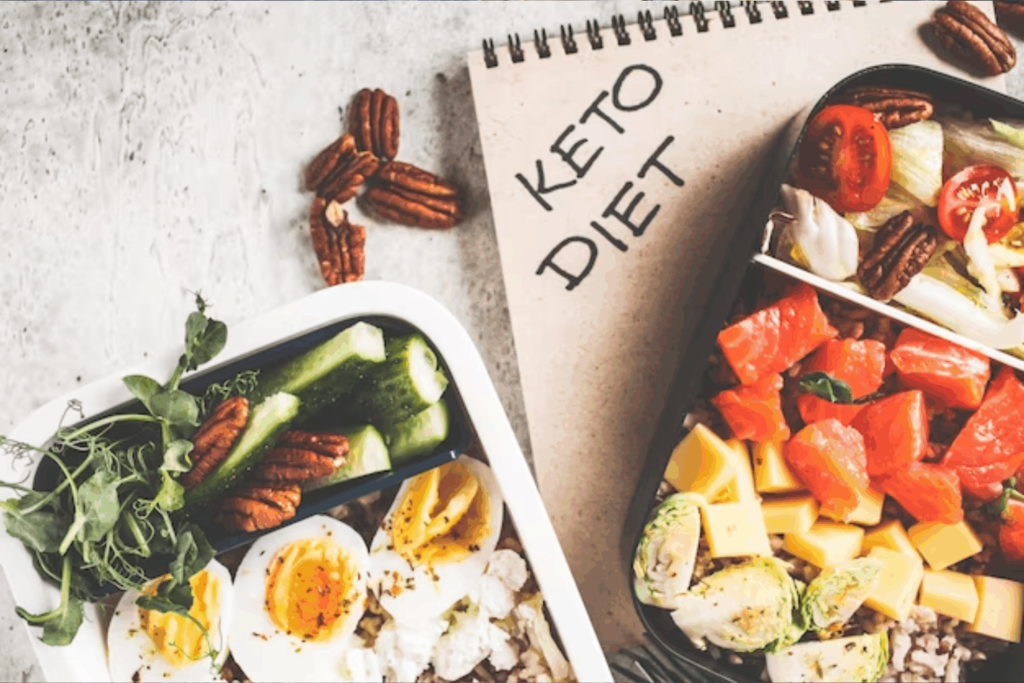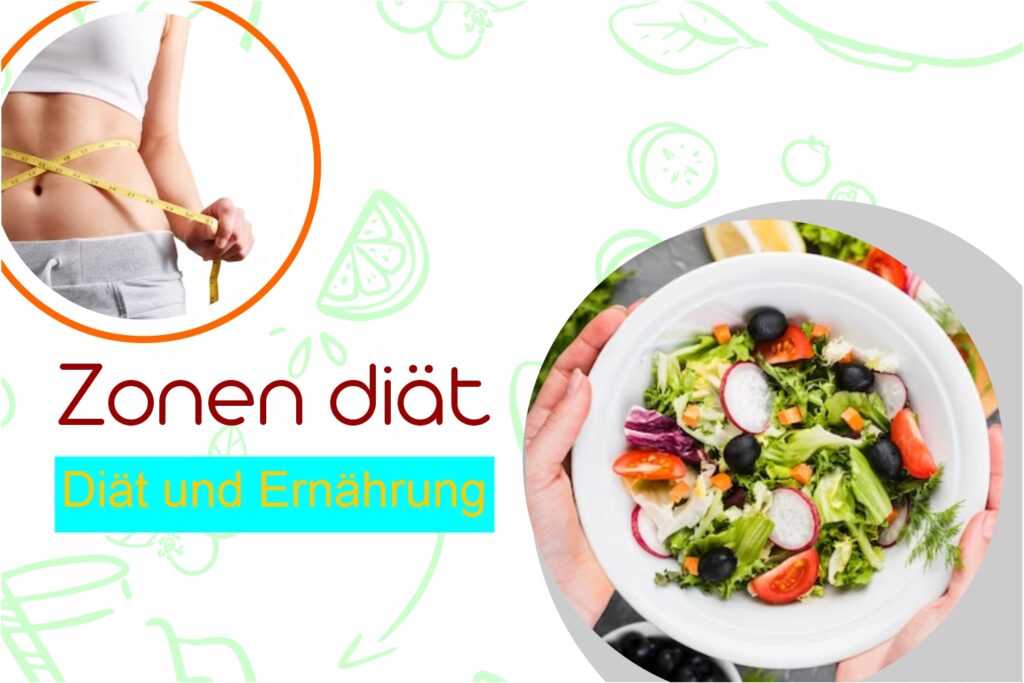The keto diet is a low-carb, high-fat diet that has gained popularity in recent years. It’s a diet that focuses on reducing carbohydrate intake and increasing fat consumption, with the goal of entering a metabolic state called ketosis. In this state, the body burns fat for energy instead of carbohydrates.
When it comes to the keto diet, it’s important to know what foods to eat and what foods to avoid. In this article, we’ll take a closer look at the foods that are allowed and prohibited on the keto diet.
Keto Diät – Die Most Important Foods to Avoid and Eat
Keto diet is a low-carb, high-fat diet that aims to enter the body into a metabolic state called ketosis, in which the body burns fat for energy instead of carbohydrates. To achieve this, it is important to avoid certain foods and focus on eating others. Here are the most important foods to avoid and eat on a keto diet:
Foods to Avoid:
- Sugary foods: Sugary foods like candy, cakes, cookies, and ice cream are high in carbohydrates and should be avoided.
- Grains: Grains like bread, pasta, rice, and cereals are high in carbohydrates and should be avoided.
- Starchy vegetables: Starchy vegetables like potatoes, corn, and peas are high in carbohydrates and should be avoided.
- Legumes: Legumes like beans, lentils, and peanuts are high in carbohydrates and should be avoided.
- Dairy products: Dairy products like milk, yogurt, and cheese are high in carbohydrates and should be avoided.
Foods to Eat:
- Meat: Meat is a staple on a keto diet and includes foods like beef, pork, lamb, and chicken.
- Fatty fish: Fatty fish like salmon, tuna, and mackerel are high in healthy fats and low in carbohydrates, making them a great choice for a keto diet.
- Eggs: Eggs are a great source of protein and healthy fats and can be eaten freely on a keto diet.
- Vegetables: Non-starchy vegetables like leafy greens, broccoli, and cauliflower are low in carbohydrates and can be eaten freely on a keto diet.
- Nuts and seeds: Nuts and seeds like almonds, walnuts, and chia seeds are high in healthy fats and low in carbohydrates, making them a great choice for a keto diet.
- Healthy oils: Healthy oils like olive oil, coconut oil, and avocado oil are high in healthy fats and can be used freely on a keto diet.
It is important to note that everyone’s body is different and the foods that work for one person may not work for another. It is recommended to consult a doctor or a registered dietitian before starting a keto diet.
What is the keto diet and how does it work?
The keto diet is a low-carb, high-fat diet that aims to put the body into a metabolic state called ketosis, in which the body burns fat for energy instead of carbohydrates. By drastically reducing carbohydrate intake and increasing fat consumption, the body is forced to use fat as its primary source of energy, leading to weight loss and improved overall health.
What are the benefits of the keto diet?
The keto diet has been shown to have numerous health benefits, including weight loss, improved blood sugar control, increased energy levels, reduced inflammation, and improved mental clarity. Additionally, the keto diet can help reduce the risk of chronic diseases such as heart disease, cancer, and Alzheimer’s.
What foods can I eat on the keto diet?
On the keto diet, you should focus on eating high-fat foods such as meats, eggs, dairy products, nuts, seeds, and oils. You should also eat moderate amounts of protein-rich foods such as poultry, fish, and shellfish. Vegetables that are low in carbohydrates, such as leafy greens, broccoli, and cauliflower, can also be consumed in moderation.
What are the potential risks and side effects of the keto diet?
While the keto diet can be a safe and effective way to lose weight and improve overall health, there are potential risks and side effects to be aware of. These include the risk of nutrient deficiencies, particularly in vitamins and minerals, as well as the potential for negative impacts on gut health and bone health. Additionally, some people may experience side effects such as fatigue, headaches, and constipation when transitioning to the keto diet.
How can I ensure that I’m getting enough nutrients on the keto diet?
To ensure that you’re getting enough nutrients on the keto diet, it’s important to eat a variety of nutrient-dense foods, including meats, eggs, dairy products, nuts, seeds, and oils. You should also consider supplementing with vitamins and minerals to ensure that you’re getting enough of these nutrients. Additionally, eating a variety of low-carb vegetables can help provide additional nutrients and fiber. It’s also important to stay hydrated and to listen to your body’s nutritional needs.
here are some German sources that discuss the topic of “keto diet” and what foods to avoid and eat:
- “Keto-Diät: Was essen und was vermeiden?” by Focus Online (https://www.focus.de/gesundheit/diaten/keto-diat-was-essen-und-was-vermeiden)
- “Keto-Diät: Die wichtigsten Infos” by Stern (https://www.stern.de/gesundheit/diaten/keto-diat-die-wichtigsten-infos-3016124.html)
- “Keto-Diät: Tipps und Tricks” by Süddeutsche Zeitung (https://www.sueddeutsche.de/gesundheit/diaten/keto-diat-tipps-und-tricks-1.4720436)
- “Keto-Diät: Was essen und was vermeiden” by Ärzte Zeitung (https://www.aerzte-zeitung.de/kretische-diat-was-essen-und-was-vermeiden/)
- “Keto-Diät: Die besten Foods für eine erfolgreiche Diät” by Brigitte (https://www.brigitte.de/gesundheit/diaten/keto-diat-die-besten-foods-fuer-eine-erfolgreiche-diät-14726106.html)
- “Keto-Diät: Tipps und Tricks für eine erfolgreiche Diät” by Women’s Health (https://www.womenshealth.de/gesundheit/diaten/keto-diat-tipps-und-tricks-fuer-eine-erfolgreiche-diät-14726106.html)
- “Keto-Diät: Was essen und was vermeiden” by Men’s Health (https://www.menshealth.de/gesundheit/diaten/keto-diat-was-essen-und-was-vermeiden-14726106.html)



